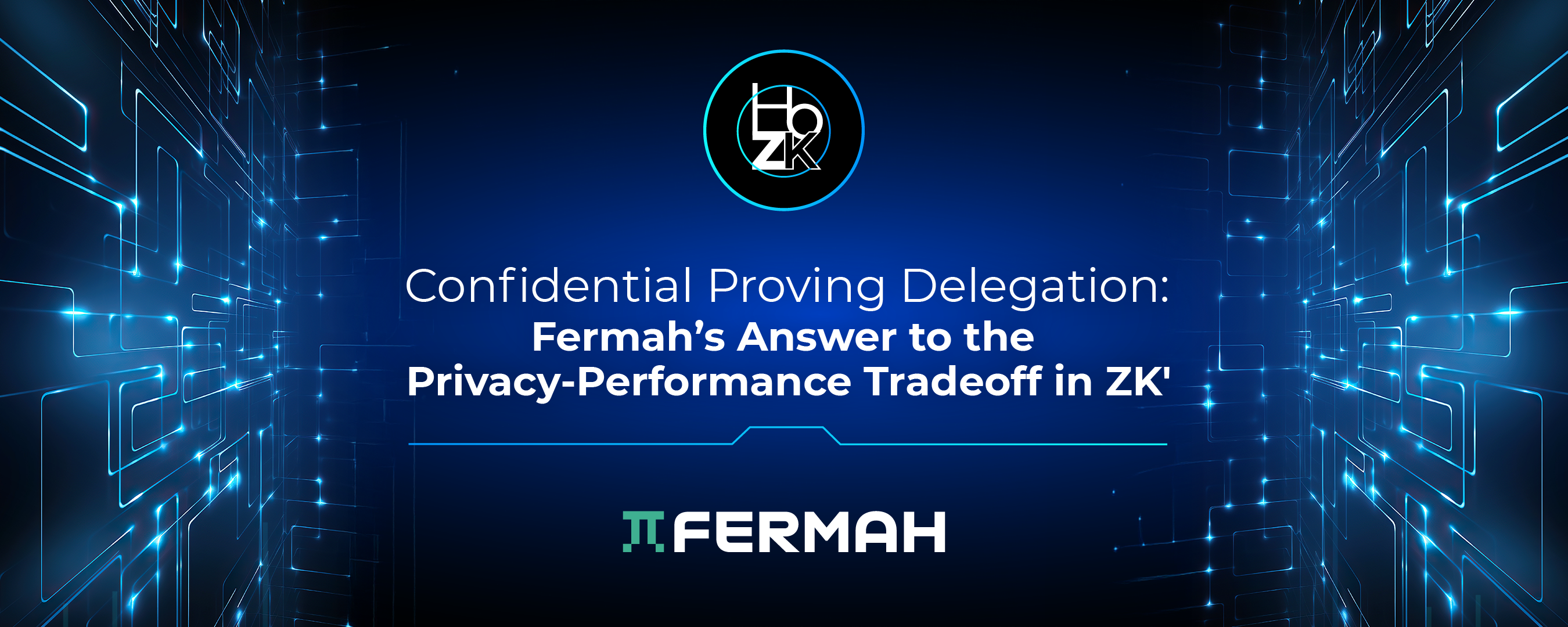
Zero-knowledge applications face a fundamental constraint: proof generation is resource-intensive, and offloading it to third parties risks leaking sensitive data. @fermah_xyz's newly announced Confidential Proving Delegation (CPD) resolves this by allowing delegated proof generation without exposing private inputs. This opens up new possibilities for ZK applications that require both performance and confidentiality.
In existing systems, developers often choose between privacy and usability. Proofs can be computed locally to preserve privacy, but this becomes impractical on constrained devices. Outsourcing the computation breaks the privacy model, since unencrypted witness data is exposed to the proving party.
CPD uses a hybrid architecture:
Together, this enables outsourced proving with zero knowledge of the underlying data.
CPD runs on Fermah’s decentralized compute network. The system uses a Matchmaker mechanism to pair proof requests with available compute nodes - GPUs, FPGAs, or other hardware - based on performance and cost requirements. Any proof system or blockchain stack can be supported, and integration is developer-facing: write in Rust, submit a transaction, and receive a valid proof - no infrastructure management required.
CPD is now live for Groth16. Support for other proof systems is planned.
Fermah’s model enables use cases previously constrained by local proving limitations:
Fermah CEO @vanishree_rao conceived CPD after realizing that many existing ZK apps optimize for succinctness, not privacy. Inspired by conversations with Amit Sahai and her prior work on zkTLS at @MinaProtocol, she focused on designing a model that preserved confidentiality during delegated proving. MPC-SNARKs and related constructions provided the theoretical foundation. Fermah's team, along with collaborators from @Ingo_zk, @TACEO_IO, and Arkworks, executed the implementation. The project also received support from @worldcoin to develop CPD for the Remainder system.
The launch prompted immediate support from across the ZK ecosystem. @eigenlayer, @NexusLabs, and others recognized CPD’s potential to unlock new performance/privacy trade-offs.
CPD expands the design space for ZK apps, removing a long-standing bottleneck for developers building privacy-first systems. Instead of choosing between local proving and data exposure, teams can now build scalable, confidential apps with minimal operational complexity.
Fermah’s approach doesn’t replace existing proof systems, but rather makes them more usable. As chains and applications increasingly demand performant, private proving at scale, CPD offers the first truly viable execution path.For a deeper dive into CPD, see https://www.fermah.xyz/blog-posts/confidential-proving-delegation